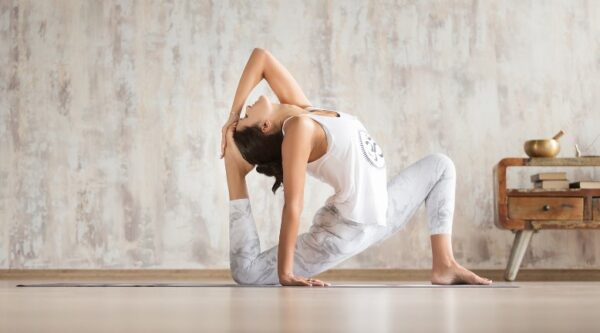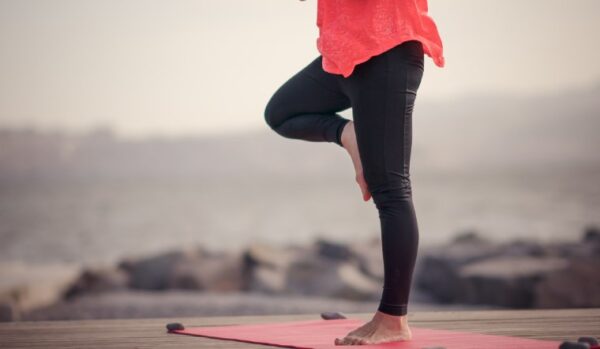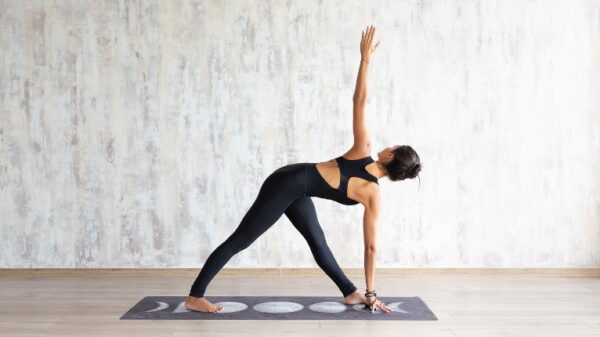Are you curious about starting a yoga practice but don’t know where to begin? Perhaps you’ve heard about the numerous benefits of yoga for your mind, body, and overall well-being, but you’re unsure how to get started. Well, you’re in the right place!
In this beginner’s guide to yoga, we will provide you with the essential knowledge and tips to embark on your yoga journey with confidence. Whether you are a complete novice or have dabbled in yoga before, this guide will help you understand the basics of yoga and set you on the path to a fulfilling and transformative practice.
So, are you ready to discover the world of yoga and experience its life-changing benefits? Let’s dive in!
Key Takeaways
- Learn the fundamentals of yoga and how to start your practice as a beginner.
- Explore the rich history and philosophy behind yoga.
- Discover beginner-friendly yoga poses and proper breathing techniques.
- Understand the balance between strength and flexibility in a yoga practice.
- Experience the numerous benefits of yoga, including relaxation and stress relief.
The History and Philosophy of Yoga

In this section, we delve into the fascinating history and philosophy of yoga. Understanding the origins and principles behind this ancient practice will deepen your appreciation for its transformative power.
The Origins of Yoga
Yoga has a long history that begins in ancient India thousands of years ago. It is said to have started approximately 3000 BCE in the Indus Valley culture. Initially, yoga was developed as a spiritual practice to harmonize the body, mind, and spirit, aiming for self-realization and enlightenment.
“Yoga is the journey of the self, through the self, to the self.” – The Bhagavad Gita
Types of Yoga
Over time, different types of yoga practices emerged, each with its own focus and techniques. Some popular branches of yoga include:
- Hatha Yoga: Emphasizes physical postures (asanas) and breath control (pranayama) to prepare the body for meditation.
- Vinyasa Yoga: An energetic, fluid technique that harmonizes breathing and movement.
- Ashtanga Yoga: Follows a specific sequence of poses, increasing in difficulty as practitioners advance.
- Kundalini Yoga: A combination of physical postures, breathing exercises, meditation, and mantra chanting to awaken the energy within.
The Philosophy of Yoga

Yoga is not just about physical exercise; it encompasses a comprehensive philosophy that guides practitioners towards spiritual growth and self-awareness. Some key philosophical concepts in yoga include:
- Yamas: Moral principles for ethical conduct towards oneself and others.
- Niyamas: Personal observances that promote self-discipline and inner observance.
- Asanas: Physical postures that enhance balance, flexibility, and strength.
- Pranayama: Breathing techniques that control and expand the life force energy.
- Dhyana: Meditation practices to achieve mental clarity and inner peace.
By exploring the history and philosophy of yoga, you gain a deeper understanding of its purpose and significance. This knowledge will enhance your yoga practice and enable you to experience the holistic benefits that yoga brings to your life.
| Type of Yoga | Description |
|---|---|
| Hatha Yoga | Emphasizes breathing exercises and physical postures as ways to get the body ready for meditation. |
| Vinyasa Yoga | A fluid, dynamic technique where breathing and movement are coordinated. |
| Ashtanga Yoga | Follows a specific sequence of poses, increasing in difficulty as practitioners advance. |
| Kundalini Yoga | Combines physical postures, breathing exercises, meditation, and mantra chanting to awaken the energy within. |
Getting Started: Yoga Poses and Practice
Are you ready to embark on your yoga journey as a beginner? In this section, we provide practical guidance on how to get started with yoga. Whether you’re looking to improve flexibility, build strength, or find inner peace, these beginner-friendly yoga poses will help you lay the foundation for a rewarding practice.
Beginner-Friendly Yoga Poses

Below are a few yoga poses perfect for beginners:
| Yoga Pose | Benefits |
|---|---|
| Mountain Pose (Tadasana) | Improves posture, strengthens legs, and promotes grounding |
| Downward Dog Pose (Adho Mukha Svanasana) | Stretches the hamstrings, strengthens arms, and calms the mind |
| Warrior I Pose (Virabhadrasana I) | Builds leg strength, opens the chest, and boosts confidence |
| Child’s Pose (Balasana) | Relieves tension in the back, hips, and shoulders |
| Tree Pose (Vrksasana) | Enhances balance, strengthens the ankles, and improves focus |
Remember to practice these yoga poses with caution and listen to your body. It’s normal to feel some discomfort or challenge in the beginning, but avoid pushing yourself beyond your limits. Consistency is key, so aim to practice these poses regularly, gradually progressing as you build strength and flexibility.
The Fundamentals of a Yoga Practice
Aside from yoga poses, understanding the basics of a yoga practice is essential. Here are a few key elements to keep in mind:
- Breathing: Focus on deep, mindful breathing throughout your practice. Proper breathing techniques help facilitate movement, oxygenate your muscles, and calm the mind.
- Alignment: Pay attention to the alignment of your body during each pose. Proper alignment ensures safety, maximizes the benefits of the pose, and prevents injuries.
- Balance: Find a balance between strength and flexibility. Yoga is not just about flexibility but also developing strength and stability in your muscles.
By incorporating these fundamentals into your practice and exploring various yoga poses, you’ll gradually build a strong foundation and set yourself up for a successful yoga journey. Enjoy the process, be patient with yourself, and embrace the transformative power of yoga.
